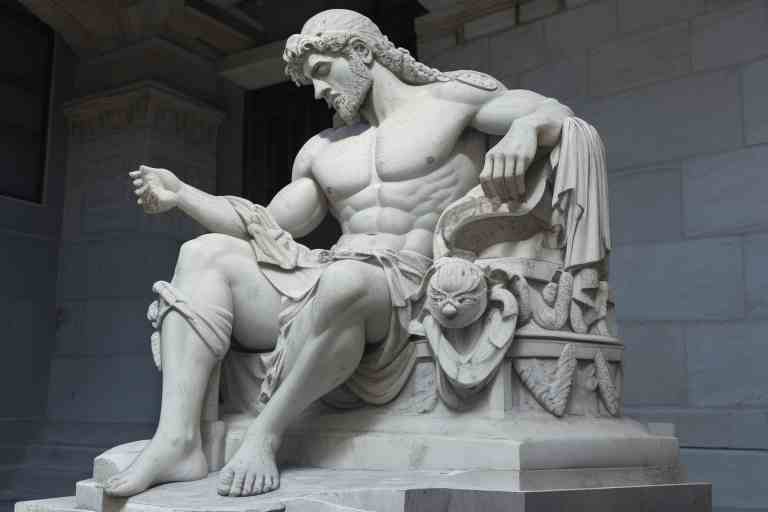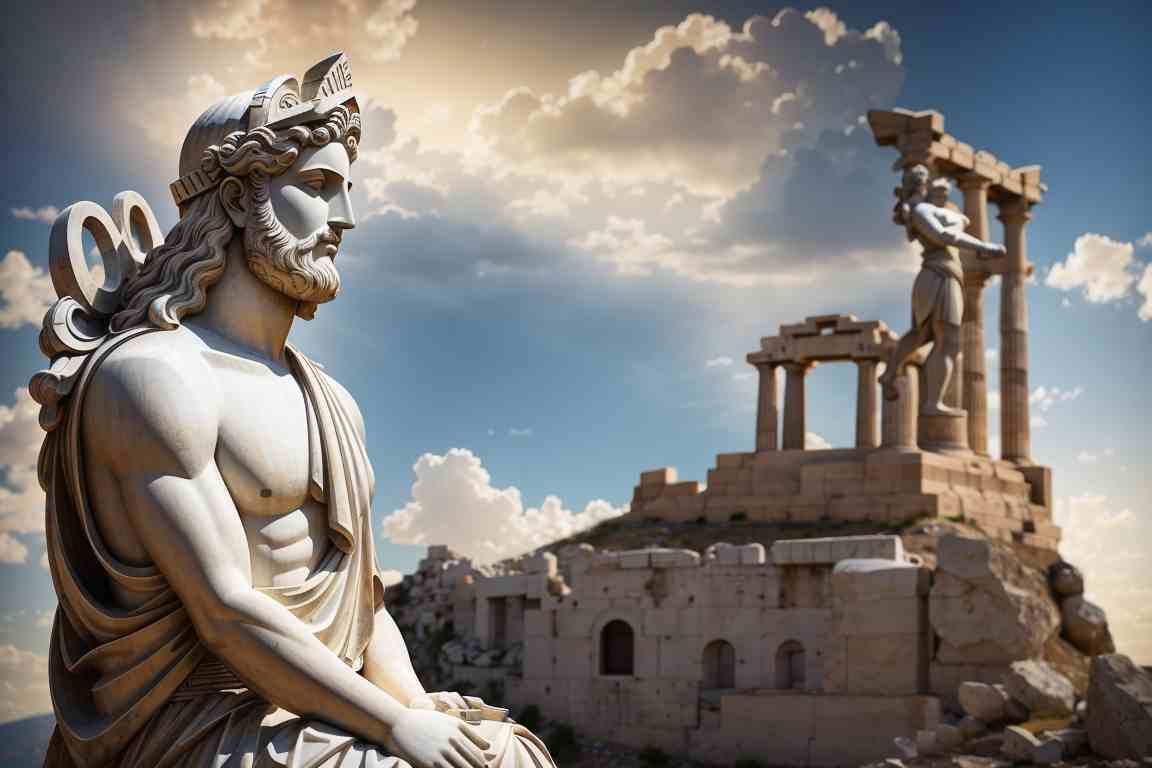Sharing is caring!
When we think of powerful empires that have left their mark on history, the Roman Empire often comes to mind.
For many, it’s an empire of mighty warriors, impressive architecture, and influential leaders.
But have you ever wondered why so many people, especially men, are particularly drawn to the stories, myths, and legends of Rome?
Throughout the ages, tales of Roman gladiators, vast armies, and great emperors have captivated the hearts and minds of many.
The Roman Empire is often viewed as a symbol of strength, determination, and resilience.
It’s not just about the battles they won or the lands they conquered, but also about their culture, their innovations, and their impact on the world we live in today.
For men, the Roman Empire can sometimes represent an idealized version of masculinity. The courage of the gladiators, the strategy of the generals, and the wisdom of the senators are qualities that many admire.
These tales of heroism and valor provide a template for what some believe it means to be a man: brave, honorable, and steadfast.
But, of course, the Roman Empire isn’t just about the heroes and the battles.
That said, here are some reasons why guys often think about the Roman Empire.
1. The Allure of Grandeur and Legacy
The Roman Empire stands as one of the most expansive and long-lasting empires in history. The sheer scale and might of this civilization can leave anyone in awe.
For many men, there’s a fascination with this kind of power and dominance. They look at the vast territories the Romans controlled and wonder about the leaders, the strategies, and the daring ventures that led to such greatness.
Secondly, legacy plays a huge part in this fascination. The Romans didn’t just conquer; they built. Roads, aqueducts, amphitheaters – the remnants of their civilization are still evident today.
Men might be drawn to this tangible sense of leaving a mark, a testament to existence that withstands the test of time.
Also, the Romans were masterful storytellers. Through statues, coins, and inscriptions, they ensured that their tales of valor, wisdom, and governance echoed through the ages.
This art of preserving one’s story and legacy is something that resonates deeply with many.
2. Symbols of Masculinity and Virtue

Romans placed a high emphasis on virtues, many of which are still lauded today. Qualities like bravery, leadership, and wisdom were not just desired; they were expected.
The tales of Roman heroes, senators, and emperors often serve as case studies in these virtues. For men today, these stories can serve as a reflection of idealized masculinity.
Plus, Roman society was built on a strict hierarchy and set roles, which in many ways mirrors some traditional views of masculinity.
There was a clarity in roles and expectations, something which some men might find appealing in today’s complex world.
Physical prowess was also celebrated in Roman culture. Gladiators, soldiers, and athletic champions were celebrated figures.
This reverence for physical strength and endurance remains a significant aspect of modern masculinity.
And then there’s the concept of Roman honor. A man’s word, his dignity, and his honor were his most prized possessions.
This resonates with the age-old notion of a man standing by his word and actions, a principle still held dear by many.
[Also read: 10 Rare Skills That Make You A Dangerous Man]
3. Political Intrigue and Strategy
The political aspect of the Roman Empire was anything but simple. Their stories of alliances, betrayals, and power plays have been the stuff of legends and have been retold in countless books and movies.
Many men are drawn to these tales, seeing them as the ultimate chess game, where intellect and strategy determined the fate of empires.
The Senate’s role, the various political factions, and the constant tussle between the rulers and the ruled provide a wealth of material for anyone interested in politics and governance.
It gives insights into leadership styles, decision-making processes, and the art of persuasion.
The rise and fall of influential figures in the Roman Empire also provides lessons in ambition, hubris, and redemption. From Julius Caesar’s audacious power grabs to Marcus Aurelius’ philosophical reign, there’s a tale for every facet of human nature.
4. Warfare and Innovation

The Roman legions are legendary. They aren’t just tales of valiant men going into battle; these stories are about precision, discipline, and incredible innovation in the art of warfare.
The Romans devised some of the most effective battle strategies, many of which are studied even in modern military academies.
Their ability to absorb and improve upon the weapons, armor, and techniques of the civilizations they encountered is remarkable. Every campaign brought new lessons and the Empire always adapted.
Think of the Roman gladius, that short sword, optimized for their unique fighting style, or their testudo formation, a mobile fortress made up of shields.
The sheer logistical might behind each campaign was an art of its own.
Moving legions, setting up camps, ensuring supply lines – the Romans were masters at maintaining order in the chaos of battle, ensuring their troops were always fed, rested, and ready.
5. Trade and Economy
You know, for all the talk about wars and politics, the Roman Empire was also an economic powerhouse.
Their trade routes stretched from the sands of Arabia to the cold reaches of Britannia. And these weren’t just routes to move goods; they were lifelines that connected cultures.
The Romans had this incredible ability to recognize value. They’d find commodities like spices in the east or tin in the west and understand the demand for them across their territories.
This keen sense of commerce ensured the prosperity of the Empire for centuries.
Their vast trade network also meant that Rome was a cosmopolitan hub. The markets bustled with goods and people from all over the known world.
It wasn’t just about buying and selling; it was an exchange of stories, ideas, and innovations.
[Related: How To Analyze Someone’s Personality]
6. Influence on Modern Governance

Look around, and you’ll see the fingerprints of the Roman Empire on so many aspects of modern governance. The concept of a Senate? Roman.
The idea of codified laws that are displayed publicly for all citizens to see? That’s Roman too, like the Twelve Tables.
The Romans believed in the idea of “civitas”, which emphasized the rights and duties of a citizen. Being a Roman citizen came with privileges and responsibilities. This sense of civic pride and duty forms the backbone of many modern democracies.
Their legal system, too, has had a lasting impact. Many legal principles, like the idea that one is innocent until proven guilty, have their roots in Roman jurisprudence.
This emphasis on justice and fairness is a legacy that still shapes judicial systems worldwide.
7. Religion and Spirituality
The Roman pantheon was vast, with gods and goddesses overseeing every aspect of life. But it wasn’t just about worshiping these deities; it was about understanding the world around them, finding explanations for natural phenomena, and seeking protection.
As the Empire expanded, they encountered diverse religions. Rather than suppressing them, the Romans often incorporated these beliefs, showcasing their flexibility and pragmatism.
This blending of beliefs enriched Roman spirituality and provided a unique perspective on divinity.
Later, the adoption of Christianity by the Empire played a pivotal role in shaping the course of Western civilization.
The spread of Christianity throughout the Roman territories, backed by imperial support, laid the foundation for it to become one of the world’s dominant religions.
The Takeaway
The Roman Empire’s allure isn’t just about grand battles or legendary heroes. It’s a window into a time where strength, strategy, and honor were deeply valued.
For a lot of men today, these stories from Rome serve as a reminder of what it means to face challenges head-on and to strive for greatness. But more importantly, by looking back at the Romans, we can better understand our own world and our own place in it.
[Read: What Makes a Man a Man? (10 Defining Characteristics)
- All photos from freepik.com
Sharing is caring!
